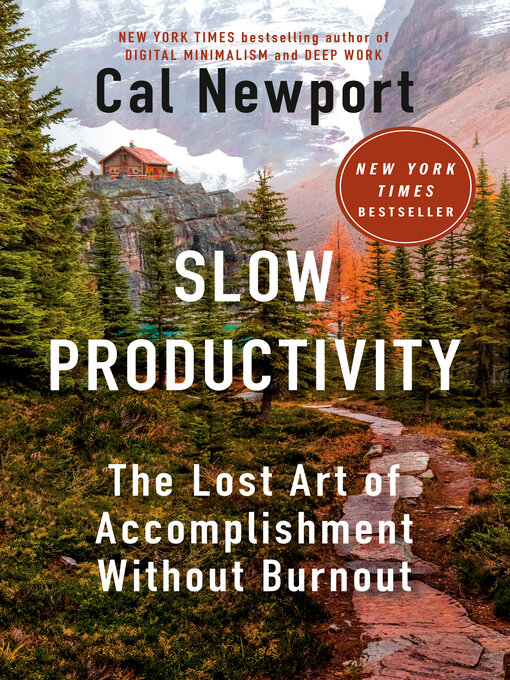
Slow Productivity

Slow Productivity: The Lost Art of Accomplishment Without Burnout
Cal Newport • 30 highlights
amazon.com
Slow Productivity: The Lost Art of Accomplishment Without Burnout
Cal Newport • 12 highlights
amazon.com
A slower approach to work is not only feasible, but is likely superior to the ad hoc pseudo-productivity that dictates the professional lives of so many today.